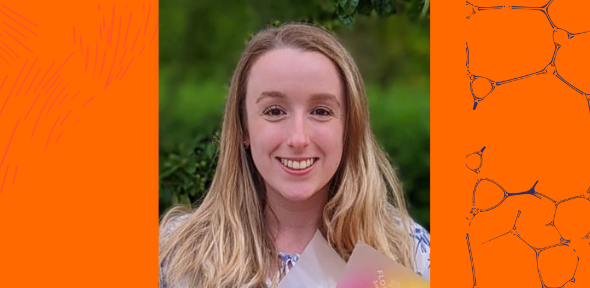
Submitted by Sophie Milbourne on Thu, 22/09/2022 - 10:41
On 15th September, PhD student, Laura Booth, from our Integrative Toxicology Training Partnership (ITTP) programme competed in the national finals of the 3 Minute Thesis (3MT) competition.
The 3MT competition challenges research-based postgraduate students to distill their research into a three-minute story for a non-specialist audience, with a single PowerPoint slide allows as a visual aid. Events are held at universities around the UK before the winners move on to semi-final events and of course a national final.
After winning the Judge’s Choice and the People’s Choice prizes at Newcastle University, Laura was one of 67 institutional winners who were whittled down to 12 semi-finalists and then eventually 6 finalists.
The final
Laura’s research focuses on the cardiotoxic side effects of anthracycline anticancer drugs and how they might prematurely age a patient’s heart. She studies at Newcastle University with Gavin Richardson and Jason Gill.
Her talk about ‘the heart-breaking problem with anticancer drugs; a Jekyll and Hyde story’ emphasises how the cancer survivor population is growing so it is increasingly important that we understand more about the long-term off-target effects of anticancer treatments. The Jekyll and Hyde analogy explains how these anticancer drugs have a good side (fighting cancer) but also a bad side (cardiotoxicity). Laura wrapped up by emphasising that more and more of us will survive a cancer diagnosis long enough to feel and long-term side effects of treatments.
The judges said that her talk has real emotional impact and it was clear that this is a research area that really does affect every one of us.
Unfortunately, Laura didn’t walk away with the prize on this occasion but participating and getting this far was a win for her.
“The 3MT experience overall was great for me! Nerve-wracking in places but really enjoyable. I learnt a lot about research communication. Everybody from the contestants and judges to the organisers were really positive and the atmosphere was friendly even though it was a competition.”
“It was fantastic to watch Laura in the 3MT final, she explained her complex research clearly and concisely and should be very proud of getting into the final.” Kirsti Hornigold, ITTP Manager from the MRC Toxicology Unit.
Congratulations to Laura for making it all the way through the national finals; a fantastic achievement!
What did you learn from doing the 3MT competition?
“Within the time constraints and with a non-specialist audience, I learnt that it is okay to simplify details or to gloss over certain points to make your research accessible and to summarise it’s importance and impact. This is a stark contrast with my day job which is all about those nuances and unpicking the small details of biology. I think this will be really helpful for me going forward for things like poster presentations – when you only have a short time frame and a few bits of data to make your most important points.”
What advice would you have for anyone looking to do 3MT in the future?
"My advice to future 3MT-ers would be: try to find the part of your research which has real-world impact and is understandable at a human level. Everybody knows that you care a lot about your research. It is part of your job. But why should your non-scientific audience care? How might this impact their day-to-day lives? Even in the most niche PhD projects there will be an angle you can take that highlights this. Secondly, try not to be too nervous – which is easier said than done! At the end of the day, you are the expert in the room on your subject and everyone listening is rooting for you so try and enjoy the process.”

